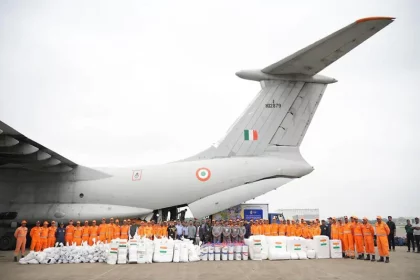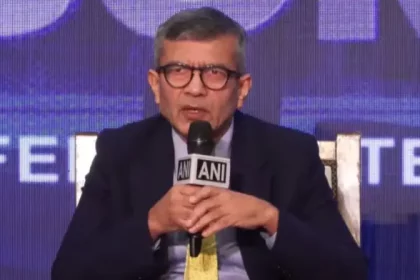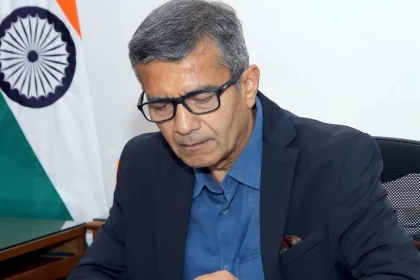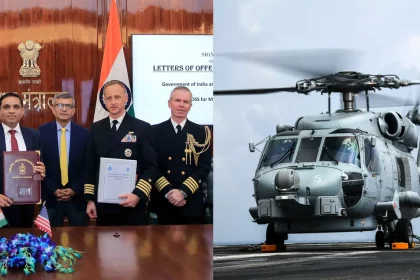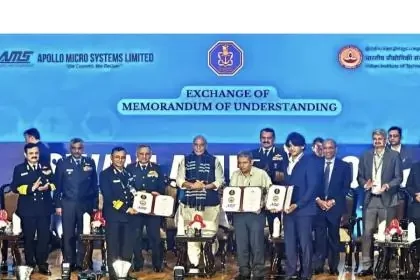27 Tons of Relief Material Delivered to Sri Lanka, More En Route Amid Cyclone Ditwah Crisis
India Intensifies Relief Operations as NDRF Teams, Essential Supplies Reach Cyclone-Hit Sri Lanka.
Delayed Military Supplies Will Lead to Contract Cancellation, Warns Defence Secretary Rajesh Kumar Singh
Defence Secretary Warns: Missed Deadlines Will Now Mean Contract Termination.
India May Seek 20% Higher Defence Budget for FY26 Amid Rising Security Challenges: Defence Secretary
Govt weighs major financial push to boost modernisation, indigenisation, and military readiness amid rising regional security threats.
India Signs ₹7,995-Crore Deal With US for Five-Year Sustainment of MH-60R Seahawks
India, US Seal ₹7,995-Crore Pact to Strengthen MH-60R Seahawk Fleet Sustainment.
Indian Navy Partners With IIT-Madras & Apollo Micro Systems to Accelerate Indigenous Armament Development
Indian Navy, IIT-Madras & Apollo Micro Systems Sign MoU to Develop Next-Gen Indigenous Naval Weapon Systems.
Adani Defence Acquires Majority Stake in FSTC in ₹820 Crore Deal, Boosts Pilot Training Capacity
Adani Defence Acquires Majority Stake in FSTC in ₹820 Crore Deal, Strengthens Aviation Training Ecosystem.

